can a 3 month old go in a chlorine pool
Some research suggests that infant swimming in chlorinated pools might increase the risk of airway inflammation but there isnt enough information conclusively linking infant swimming and asthma to warrant keeping healthy babies out of indoor pools. In fact breathing problems can show up even when chlorine levels are low.
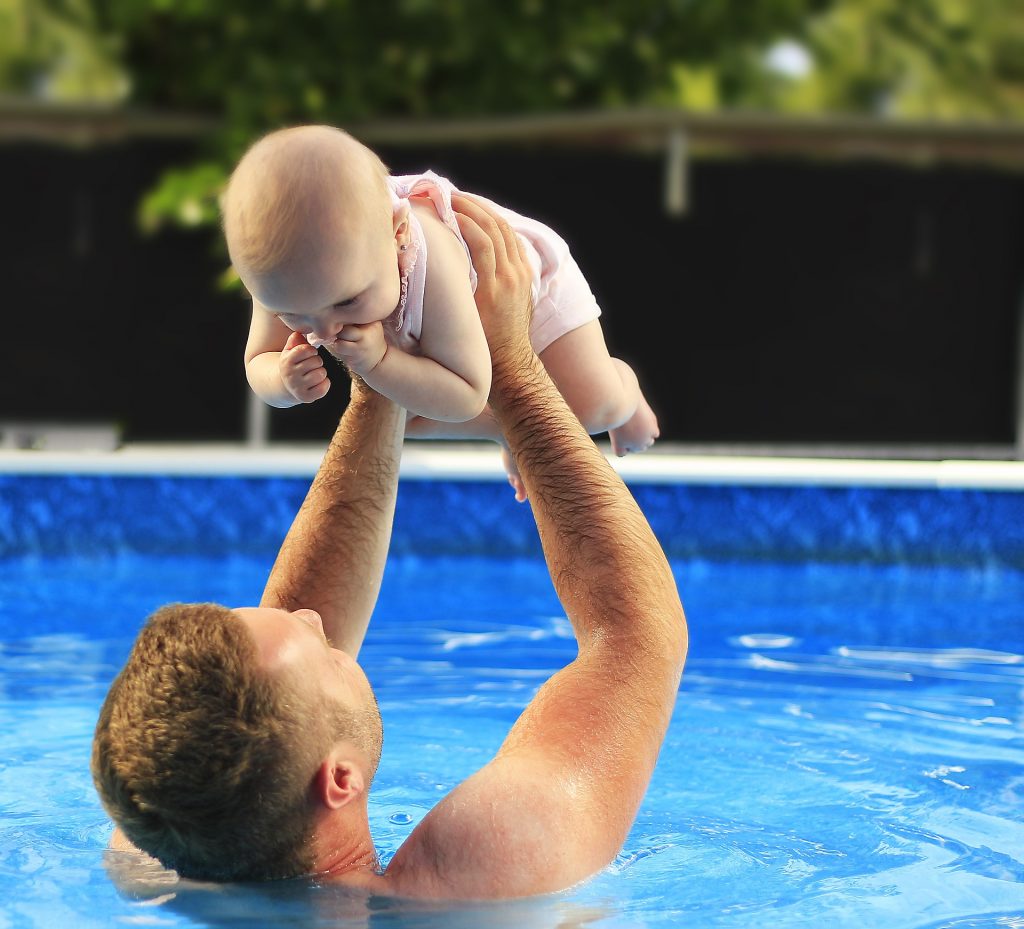
Is A Chlorine Pool Safe For Babies
Babys skin eyes and breathing passages are more sensitive to chlorine than are adults.

. Is chlorine safe for babies. There are two reasons for this precaution. Multiple large studies havent found any link between chlorine and asthma in babies.
Test the water to ensure that the temperature is suited for younger children before just diving in with them. If your baby is younger than 6 months make sure the pool is heated to about 32 C. The Hygiene of Water in Pools.
The biggest risk to both pets and people are related to handling the chlorine in its concentrated form before it is placed in the pool. Chlorine tablets should always be stored in their original containers and kept in a safe place inaccessible to pets and children. Also remember that babies less than one-year old should never swim in a public pool.
Chloramines can build up in the water which means they can build up in the air if there is not enough fresh air. As explained by the Mayo Clinic infants who are exposed to chlorinated water at a very young age may be at an increased risk of developing lower respiratory tract infections or. It is not safe to use bleach or pool disinfectant chlorine or bromine in the water in small inflatable or plastic kiddie pools and water slides for a few reasons.
Swimming can be dangerous for babies younger than 2 months. A large public pool would be too cold for a baby under 6 months. As a rule of thumb if its something you would expose your baby to then its something you can do if youre breastfeeding.
Yes swimming in a chlorinated pool is fine for breastfeeding moms. The chlorine levels found in neighbourhood and public pools are generally kept a little high in order to keep other infections at bay. Accordingly is a chlorine pool safe for babies.
For babies younger than 2 months their vulnerable immunity systems can be a concern when going in the pool. You may want to adjust the chlorine quantity depending upon the weather seasonality and your pool usage. Chlorine Chemicals From Pools May Harm Infants Lungs Researchers Suggest By Miranda Hitti Medically Reviewed by Louise Chang MD on June 04 2007 From the WebMD Archives June 4 2007 -- Infant.
Generally you will want to wait at least 4 hours but ideal is waiting for one complete turnover of the water the time it takes all the water to go through the filter. If your baby has a bad cold a temperature or seems unwell dont go swimming. Most swimmers understand that chlorine is added to pools to kill germs that can make swimmers sick.
Its fine for a short period of time. As for baby in the pool. In short this answer is yes.
Here are a few tips before we dive into the chart. Infant and toddler health Researchers theorize that chlorine a common disinfectant used to keep pools clean binds with swimmers sweat dirt skin cells and urine to create byproducts in the water and air that might harm an infants lungs and put him or her at risk of developing asthma. I would sit by the pool with an umbrella to keep shade on my little one while my 2 12 year old was on the pool steps.
Sadly swimming and breathing troubles can go hand in hand. New mothers should not go swimming until at least 6 weeks after the birth or when they have stopped bleeding. Chlorine-based pool sanitizers help reduce swimmers risk of waterborne illnesses such as diarrhea swimmers ear and various skin infections.
Pool chemicals are necessary to keep the bacteria count of the water down but overexposure can be unhealthful to baby. Try to avoid heavily chlorinated indoor pools. Chlorine will not hurt your baby as long as the water is balanced.
If you are using chlorine products as your primary sanitizer we recommended to maintain a residual chlorine level of 20-40ppm to effectively kill bacteria and prevent algae. Safety precautions There are lots of risks for babies and young children around water. Chloramines are a type of combined chlorine that form in water and then off gas into the air above the water.
Ideally a pool will be between 85 and 87 degrees Fahrenheit. Most city county and state health departments limit the amount of combined chlorine in the water to 04 ppm or less. If you walk into the poolroom and immediately smell chlorine assume its too strong for baby.
Alternatively babies are also sensitive to warm water and. That said there is limited research to suggest that babies may be more likely to develop asthma if they spend a lot of time in indoor swimming pools particularly if theyre already at risk of allergies. In fact swimming is great postpartum exercise.
Also your baby shouldnt swim with a tummy bug and shouldnt go swimming until he has been clear of symptoms for at least 48 hours If your baby has a skin complaint check with your GP to make sure that the chlorine wont irritate him. The chlorine in the pool cant reach your breastfeeding baby in any significant amount. I just put a hat on her swim diaper and bathing suit.
But this can lead to breathing problems in swimmers according to latest research. Its highly unlikely that your baby will get sick from swallowing some pool water but make sure any device that dispenses chlorine is kept out of reach so your baby doesnt accidentally ingest or inhale chlorine. A large portion of the water can be lost quickly through splashing or from spilling out making it hard to figure out how much disinfectant should be added.
Answer From James T C Li MD PhD. However you should always remember to make sure your baby is old enough to go swimming. If you notice that your baby feels especially cold or is he starts to shiver it is definitely time to get out.
Last summer my oldest was 2 12 and my baby was around 3 or 4 months when we started going in the pool. Chlorine helps protect swimmers from waterborne germs. Take care that the water isnt too hot or cold.
Thats why you cant find any. 14 HealthDay News -- Swimming in pools disinfected with chlorine may increase the odds that a child will develop asthma or allergies new research suggests. April 8 2002 -- For decades chlorine has been used to disinfect public drinking water and swimming pools.
Keep in mind how busy the pool is the temperature of the water and whether the pool is indoors or outdoors. Now British researchers say that a chemical by-product of chlorine --. The great advantage of chlorine over other.
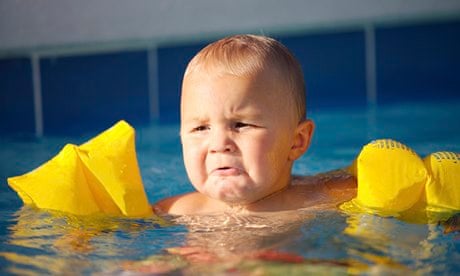
The Terrible Truth About Swimming With Children Family The Guardian

When And How To Introduce Your Baby To The Pool Little Guest
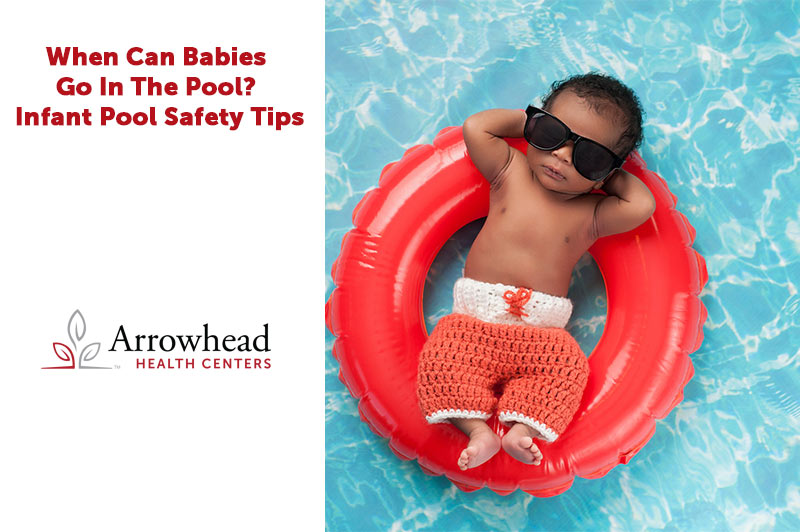
When Can Babies Go In The Pool Infant Pool Safety Tips Redirect Health Centers

When Babies Can Go In Swimming Pools Babycenter

When And How To Introduce Your Baby To The Pool Little Guest

5 Best Indoor Pools In Edmonton For Toddlers Indoor Swimming Pools Swimming Pool Designs Indoor Swimming

Swimming With Your Baby Babycenter India
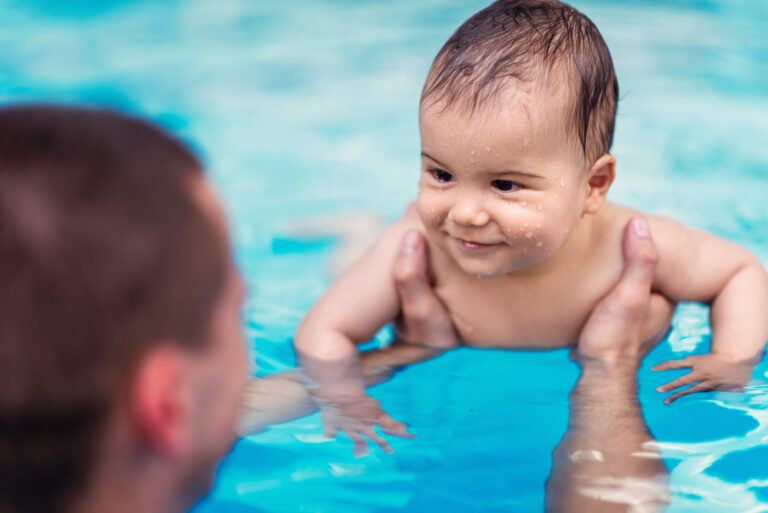
When Can A Baby Go In A Pool Experienced Mommy
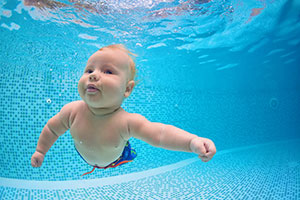
When Can Babies Go In The Pool Infant Pool Safety Tips Redirect Health Centers

When Can My Baby Go In A Pool Babycenter Baby Pool Baby Swimming 3 Month Old Baby

When Babies Can Go In Swimming Pools Babycenter

Ask Dr Sears Too Young For The Pool Parenting

Swimming Pool Tile Laying With Warranty Kerala Swimming Pool Tiles Pool Tile Swimming Pools

Pools Splashes And Wet Outdoor Furniture Cushions It S Summer Get Out There And Enjoy Your O Outdoor Furniture Cushions Decks And Porches Outdoor Furniture
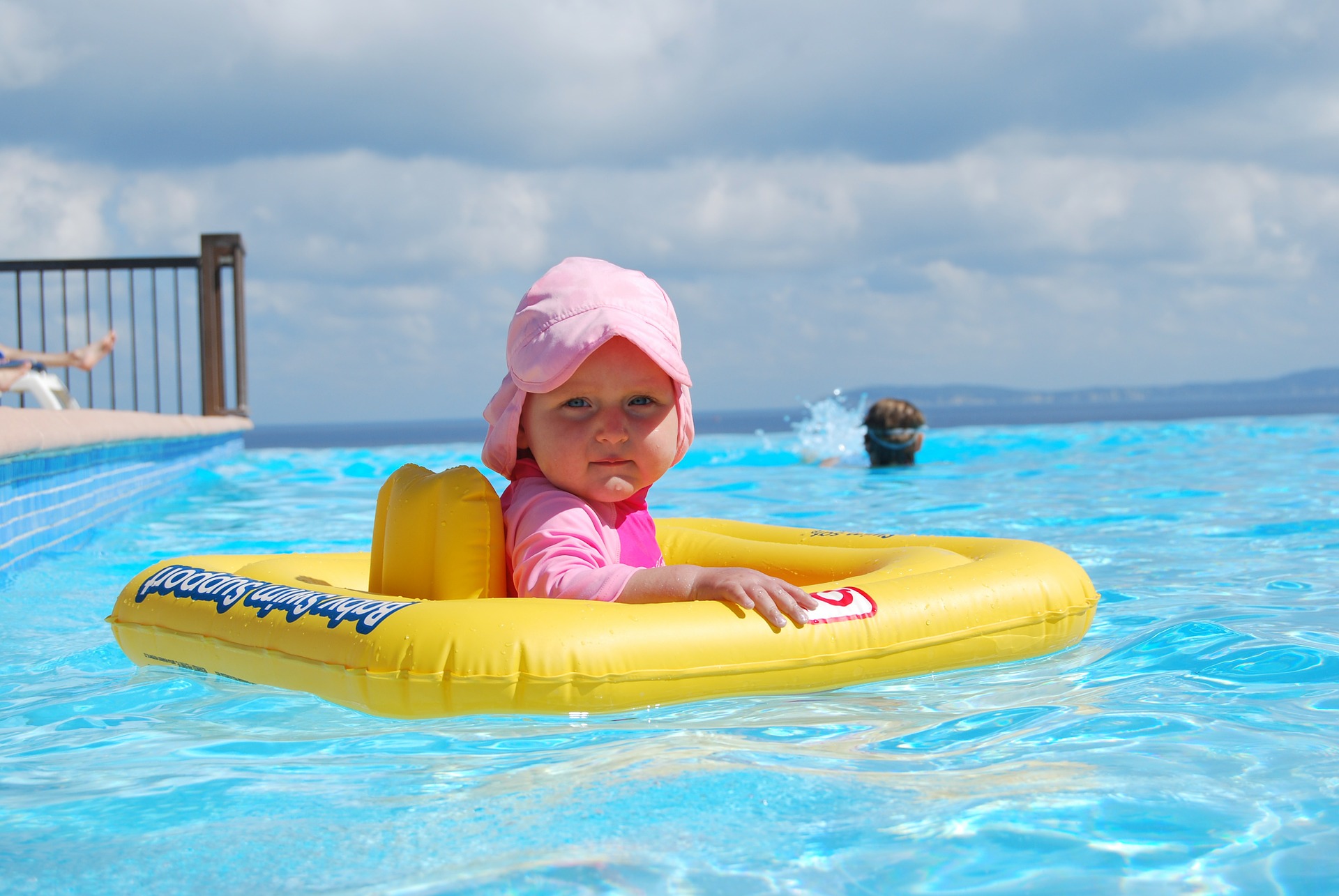
Is A Chlorine Pool Safe For Babies

When And How To Introduce Your Baby To The Pool Little Guest
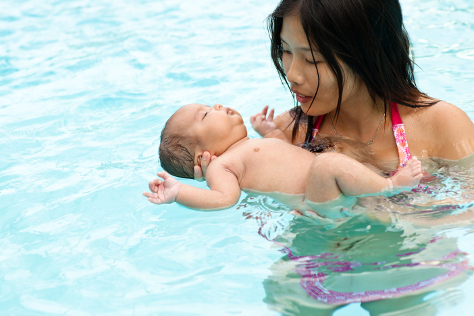
When Can I Take My Baby Swimming Bounty
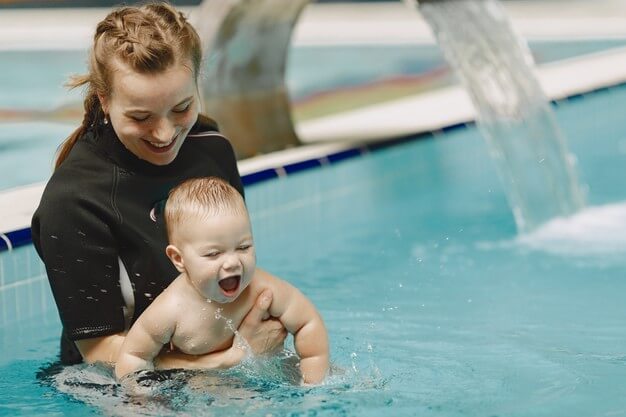
What You Need To Know Before You Take Your Baby To A Hotel Pool Easy Travel Recipes
/GettyImages-1158387529-442ba7abd351420fa5c49b1b3e7ff34e.jpg)